Looking for an alternative gift idea for the holidays? Here are 8 of the best flowering cacti
Get our expert lowdown on the showiest, but lesser known varieties, of flowering cacti

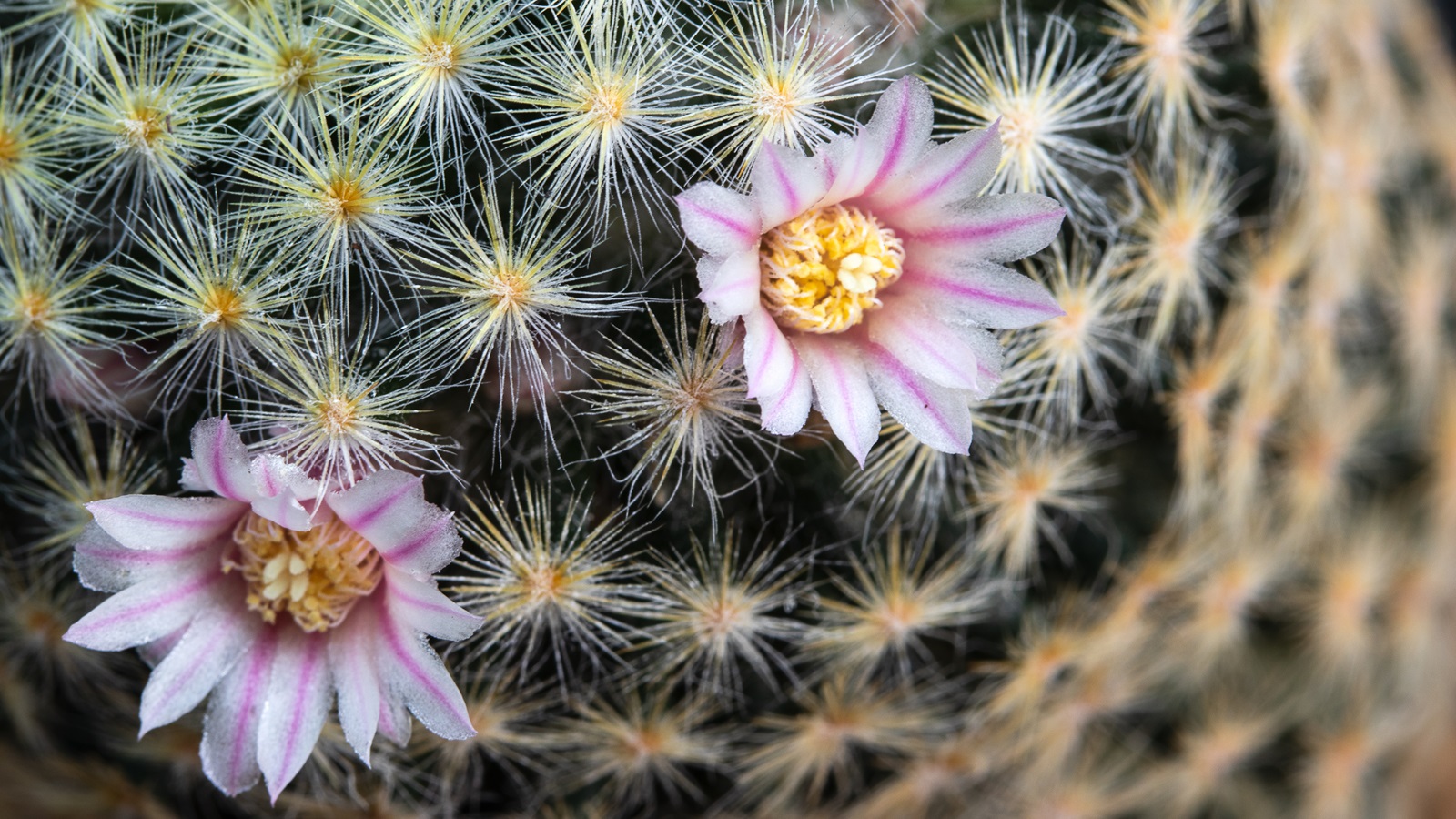
Design expertise in your inbox – from inspiring decorating ideas and beautiful celebrity homes to practical gardening advice and shopping round-ups.
You are now subscribed
Your newsletter sign-up was successful
Want to add more newsletters?

Twice a week
Homes&Gardens
The ultimate interior design resource from the world's leading experts - discover inspiring decorating ideas, color scheming know-how, garden inspiration and shopping expertise.

Once a week
In The Loop from Next In Design
Members of the Next in Design Circle will receive In the Loop, our weekly email filled with trade news, names to know and spotlight moments. Together we’re building a brighter design future.

Twice a week
Cucina
Whether you’re passionate about hosting exquisite dinners, experimenting with culinary trends, or perfecting your kitchen's design with timeless elegance and innovative functionality, this newsletter is here to inspire
Flowering cacti are popular indoor plants, and there are so many unusual and unexpected varieties to choose from. With their delicate and plentiful blooms in a surprising range of colors, they bring intriguing shapes, detail and personality into the home.
Easy to look after by following cactus care tips, and hugely individual, these curious desert beauties make striking indoor displays. Hailing from the arid and semi-arid regions of North and South America, they produce short lived but spectacular seasonal blooms that instantly demand attention. Set against the fleshy, spiny and sculptural main stems they are a cheery and fascinating talking point.
While the Christmas cactus is widely sold at this time of year for its kaleidoscope of bold, dramatic flowers, there are plenty of other, dare we say, even more appealing varieties to choose from.
1. Prickly Pear Cactus
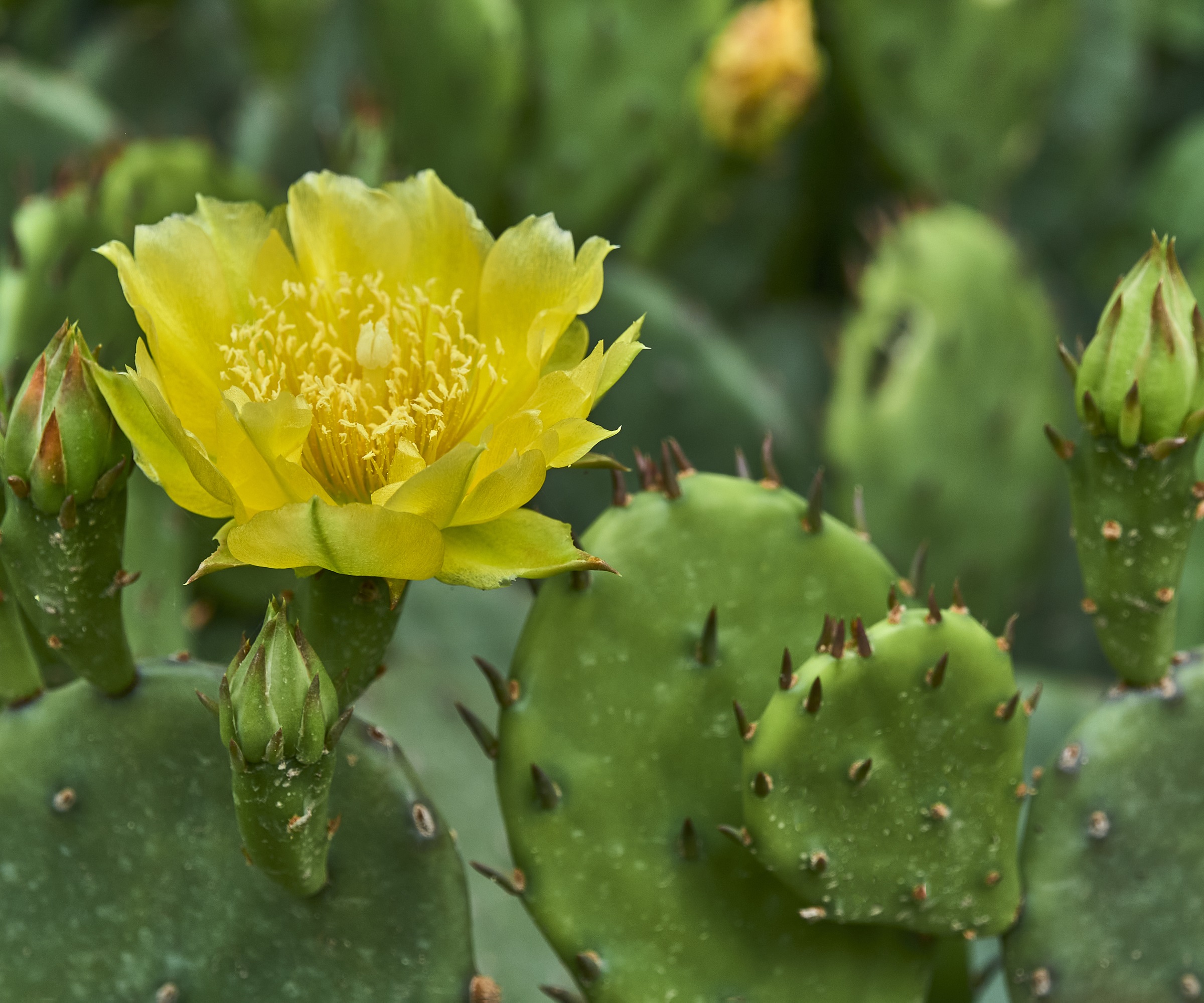
Instantly recognised for its cartoon-like round but flattened stems, the prickly pear cactus is a real showstopper. Covered in super sharp spines or fine bristles it's certainly a plant to be respected but it does have a showier side.
‘The Prickly Pear Cactus - Opuntia monacantha 'Joseph's Coat' - produces vibrant blooms, typically in shades of yellow or orange, contrasting beautifully with its colorful, variegated pads,’ says plant expert Paris Lalicata. ‘The flowers are large, cup-shaped, and bloom during the spring and summer months. Each flower lasts for a day but can be replaced by successive blooms over a few weeks.’
A lover of full sun, this variety is happiest on a sunny south or west facing windowsill potted in well draining cactus compost, such as the Miracle-Gro cactus, palm and citrus potting mix from Walmart.
2. Peruvian Apple Cactus
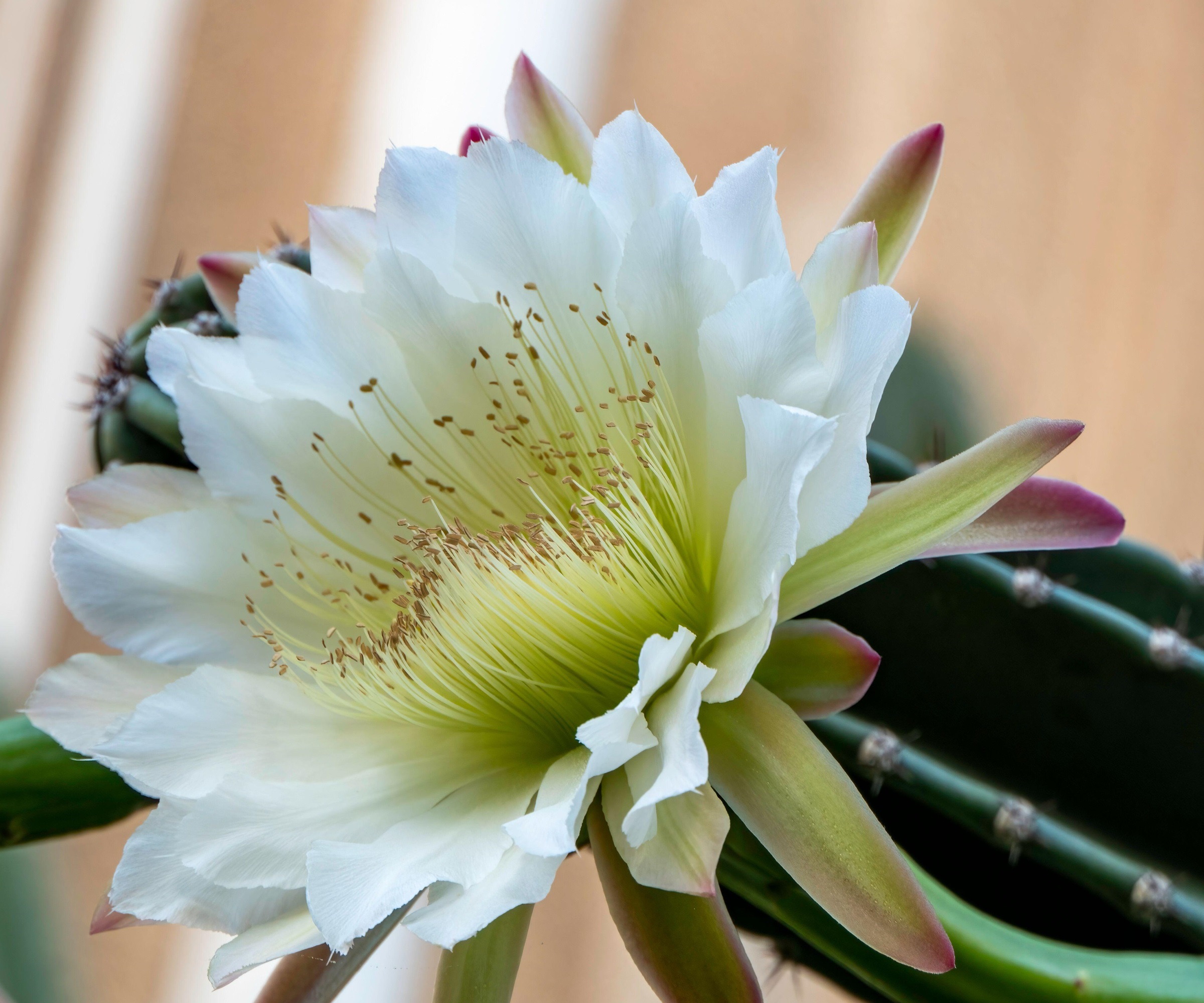
The Peruvian Apple Cactus, or Cereus peruvianus, is a real diva. Its large white flowers are brushed with yellow and have a delicious fragrance, but you will have to be diligent if you want to spot them.
Design expertise in your inbox – from inspiring decorating ideas and beautiful celebrity homes to practical gardening advice and shopping round-ups.
‘These flowers are nocturnal, only opening up at night, and typically bloom during the summer, lasting only until the early morning,’ says Paris. ‘Each bloom is ephemeral, making them a rare treat to witness. If you see signs of budding on the cactus, set your alarms at night to wake up so you don’t miss it.’
Like most cacti, this variety is sensitive to cold and detests frosts. Keep indoors in a south or west facing window where it can soak up the e the soil has dried out completely. ‘You’ll find yourself watering more often during the summer months,’ exclaims Paris. ‘Minimal fertilizing is also needed during its growing season in spring and summer.’
3. Mammillaria schiedeana
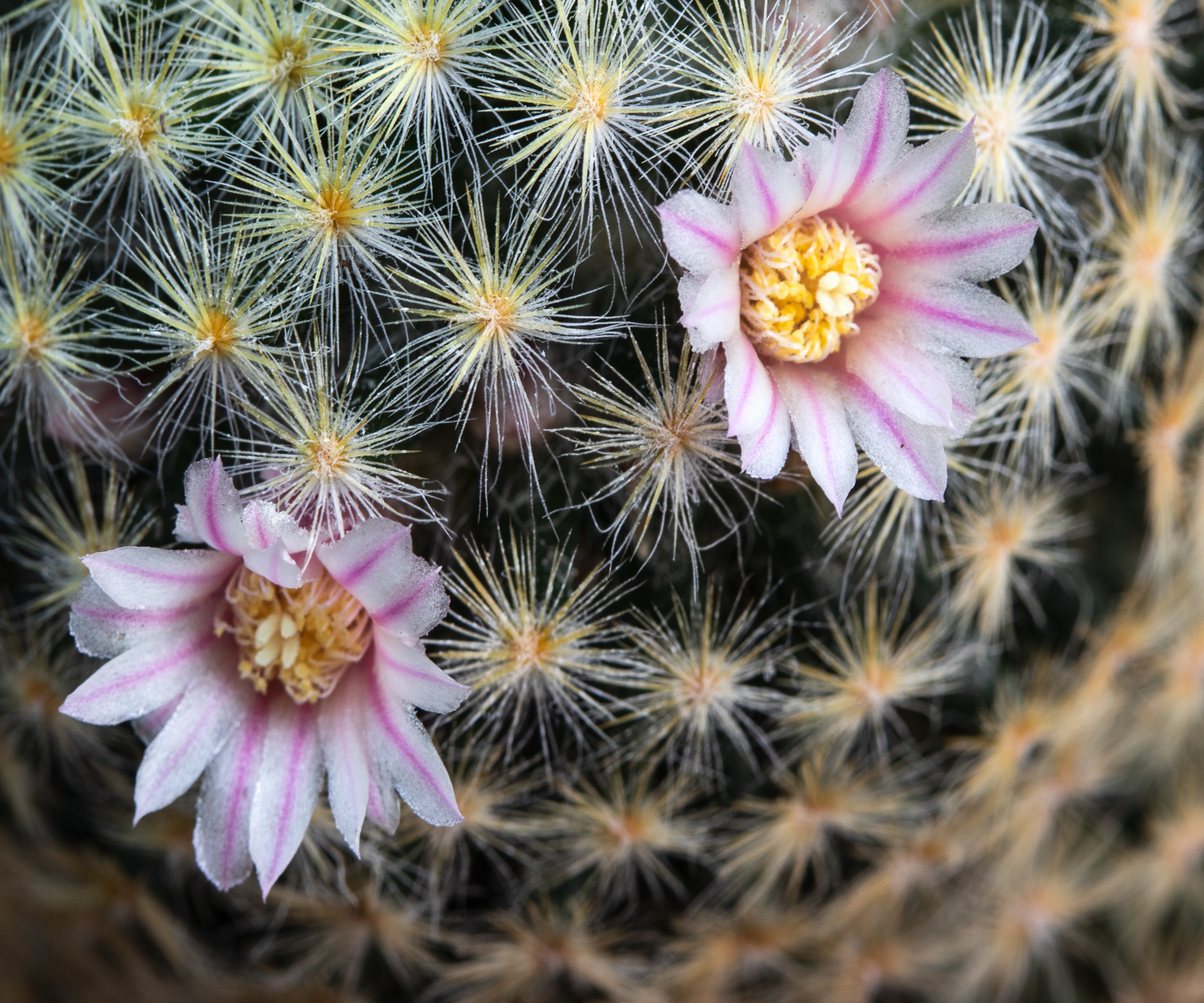
There’s something rather chic about this neatly rounded cactus and its star-like spiny rosettes. ‘Mammillaria schiedeana is an adorable little cactus native to Mexico that blooms throughout the winter, showing off small white or pink flowers in between its feathery-looking spines,’ says horticulturist Justin Hancock.
Easy-to-grow and easy-to-bloom, it simply requires bright light and watering only as and when the potting mix dries out. Fertilization in spring and summer helps encourage more blooms and faster growth. A balanced liquid feed like this Espoma organic indoor plant fertilizer from Walmart is an easy option.
Justin adds, ‘As it matures, this cactus forms offshoots, creating a mound about 4 inches tall, making it a perfect pick for a bright windowsill.’

Paris has been with The Sill for almost five years and heads up Plant Education and Community. A self-taught plant expert with over ten years of experience growing houseplants, she currently maintains an indoor garden of more than 200 plants in the northeast. Her passion is making plant care more digestible for budding plant parents and sharing the many benefits of having plants indoors.

Justin Hancock is a Costa Farms horticulturist with over 25 years in the industry. A plant enthusiast and educator, he has a degree in horticultural science and has worked in garden centers and botanical gardens, as a garden designer, and in garden publishing. He has experience gardening across the country, from Minnesota to Miami to Oregon. Justin is also co-host of the Costa Farms podcast Plant Rx.
4. Mammillaria zeilmanniana
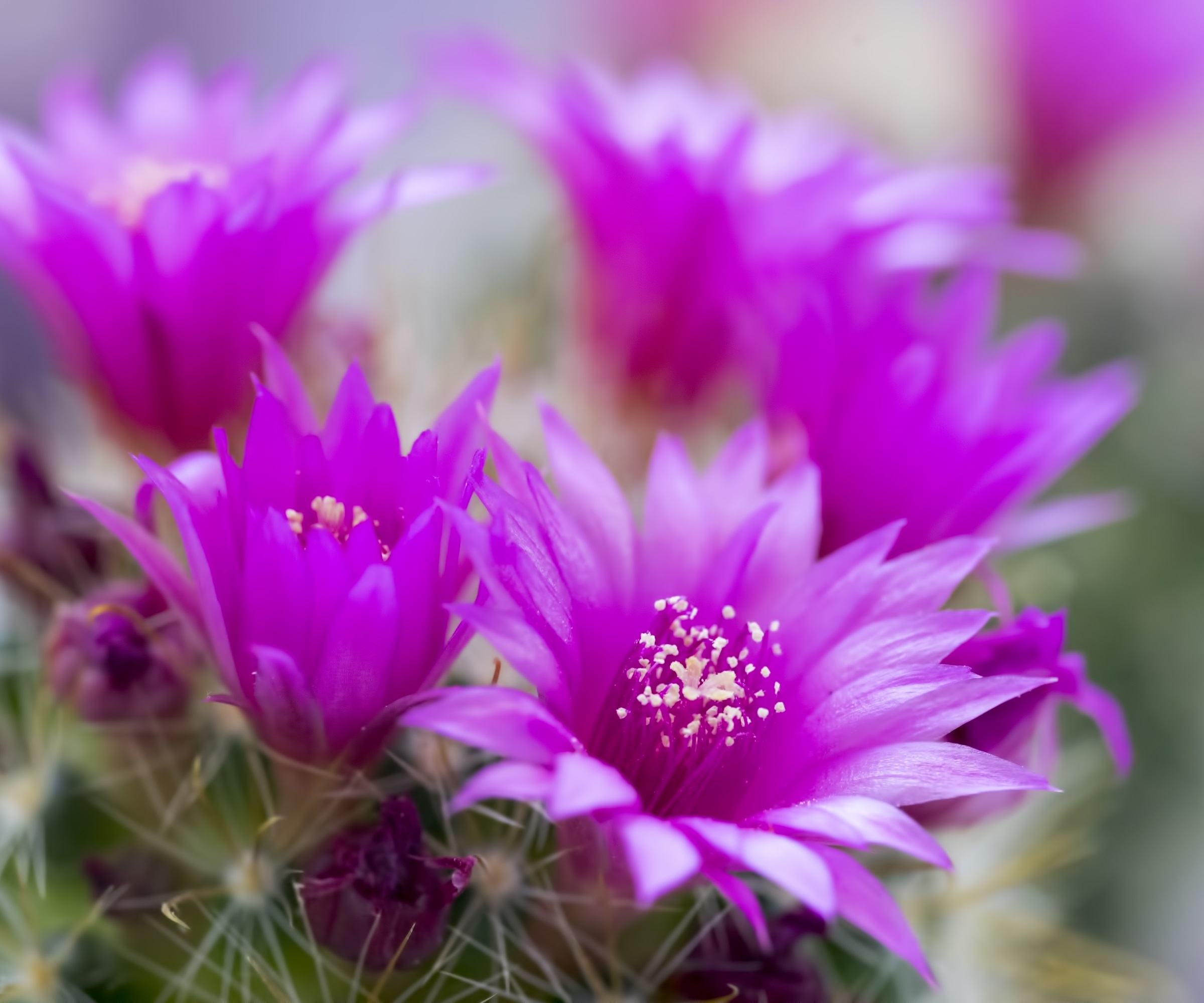
Producing pinkish or pinkish-purple flowers throughout the year, this tiny plant deserves a sunny spot in every home.
‘In its native habitat it’s considered endangered, but happily it’s commonly grown in cultivation so you can enjoy this rare beauty in your home,’ says Justin. ‘Typically staying less than 6 inches tall, it’s a relatively small cactus, so you can enjoy it just about anywhere.’
Sensitive to over watering, it is well worth taking extra care over this beauty. If this - or any cactus starts turning brown - take time to investigate the cause and work out how it can be rectified. Like other cacti, Mammillaria zeilmanniana needs bright light and good drainage to thrive.
5. Scarlet Ball Cactus
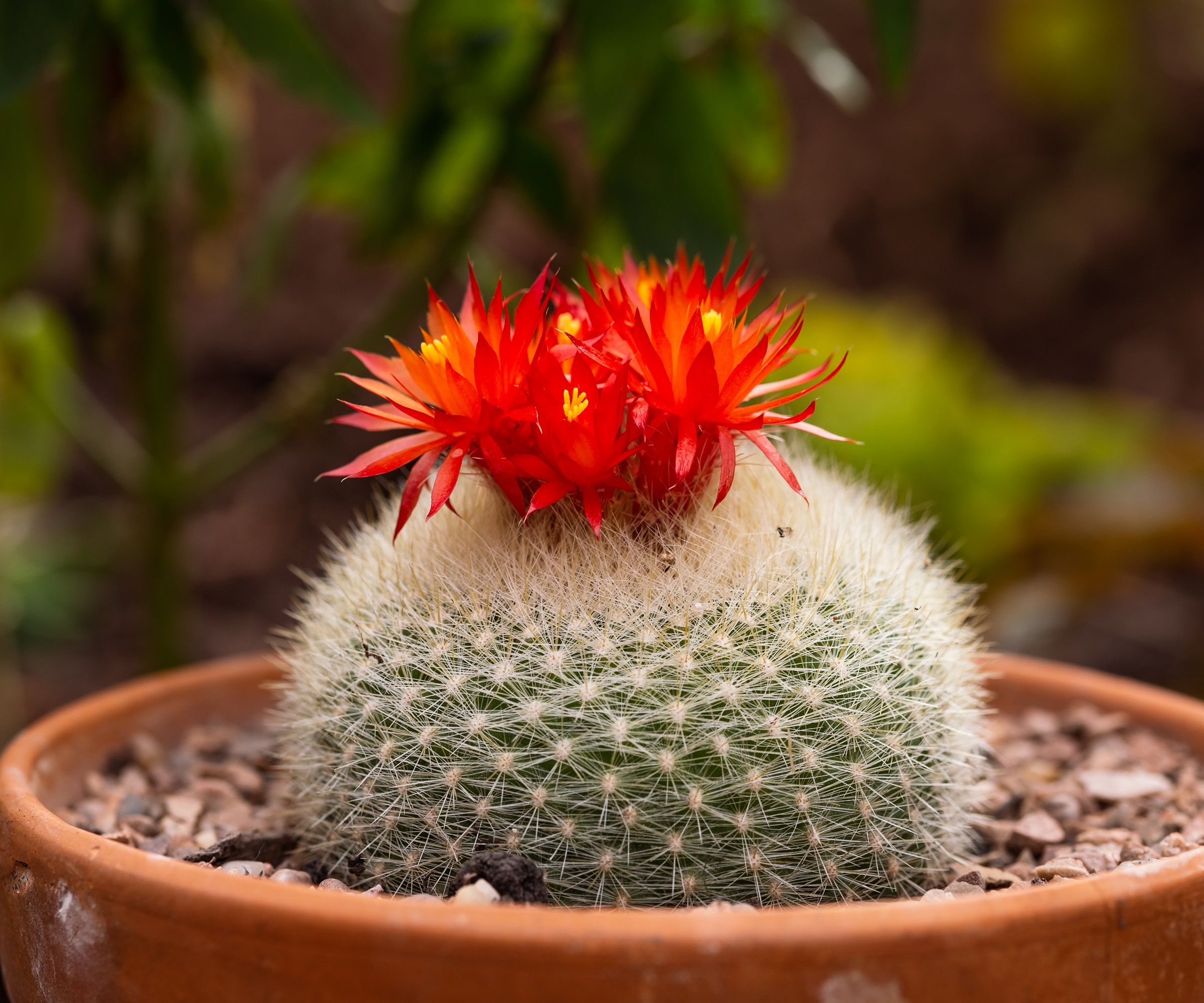
Loving bright rather than ferociously hot conditions, this rounded cactus is known not only for its neat shape, but for having the longest lasting blooms of all cacti. While many cactus blooms only remain for a day, each flower from this plant will continue for up to three weeks.
‘It is nicknamed scarlet ball cactus for its fiery red-orange blooms that are relatively large, topping the plant with a crown of color in late winter and early spring,’ says Justin. ‘It forms a ball that tends to stay less than 6 inches across and is covered in attractive, silvery spines.’
One thing to note before buying these curvy cacti is that they are rather prone to mite infestations, so be sure to look closely and carefully before bring one home. If you have inadvertently brought these tiny insects into your home, don't worry there are plenty of ways to get rid of red spider mites.
6. Easter Lily Cactus
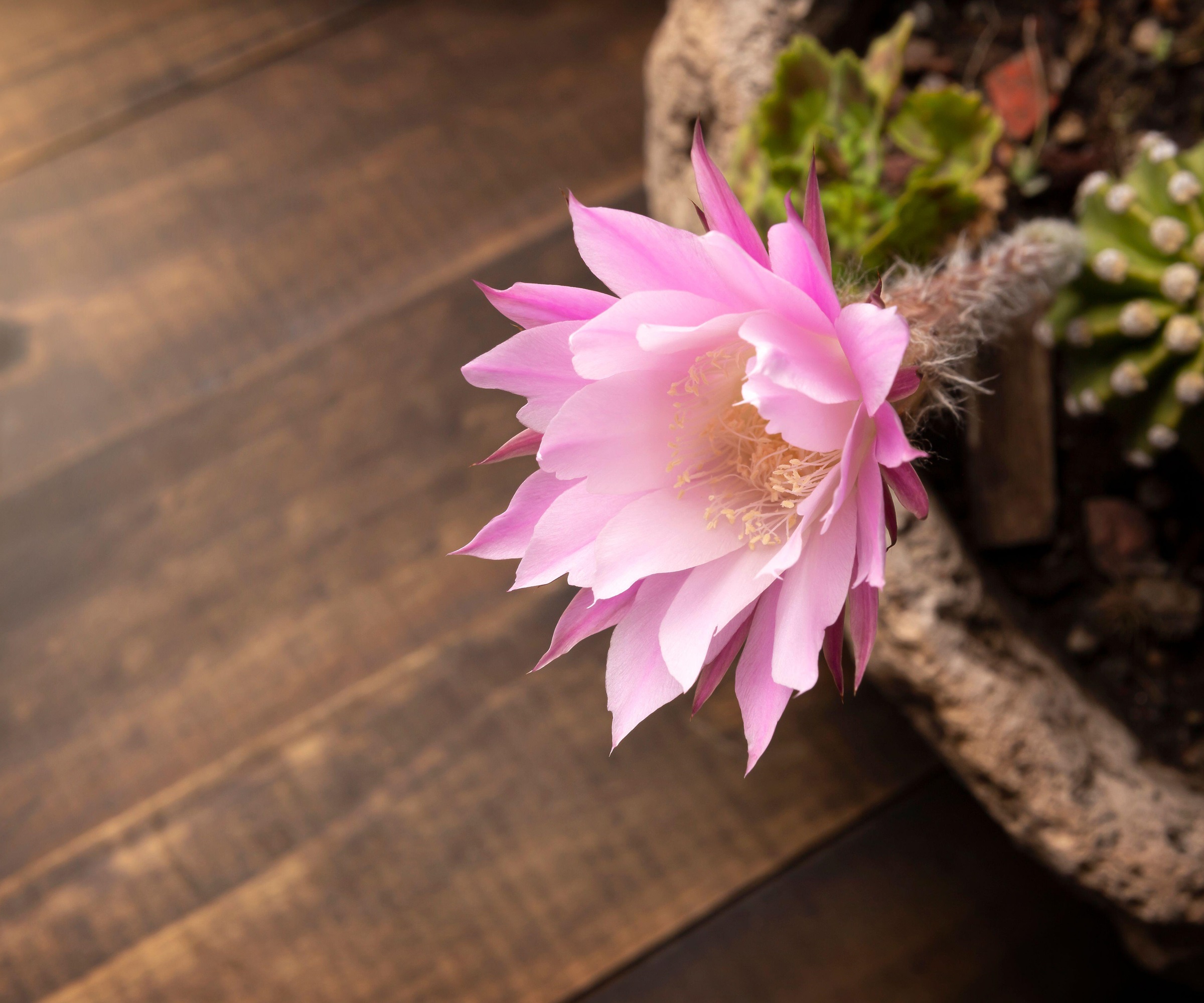
Bearing flowers that are often bigger than the plant itself, the Easter lily cactus is a real showstopper. ‘Botanically known as Echinopsis subdenudata, this cactus earned its common name because of its large, pure-white, fragrant flowers that open at night,’ explains Justin.
With a delicious, lemony scent these blooms will perfume a surprisingly large area, but they will only last for a day. Although this rounded cactus will flower three or four times each season, from late spring to the end of summer, it won’t produce its first bud until it is three years old.
Easy to look after, and producing more and more flowers as it matures, this cactus is becoming hugely popular and is widely found in stores, plant nurseries and online retailers.
7. Mammillaria scrippsiana
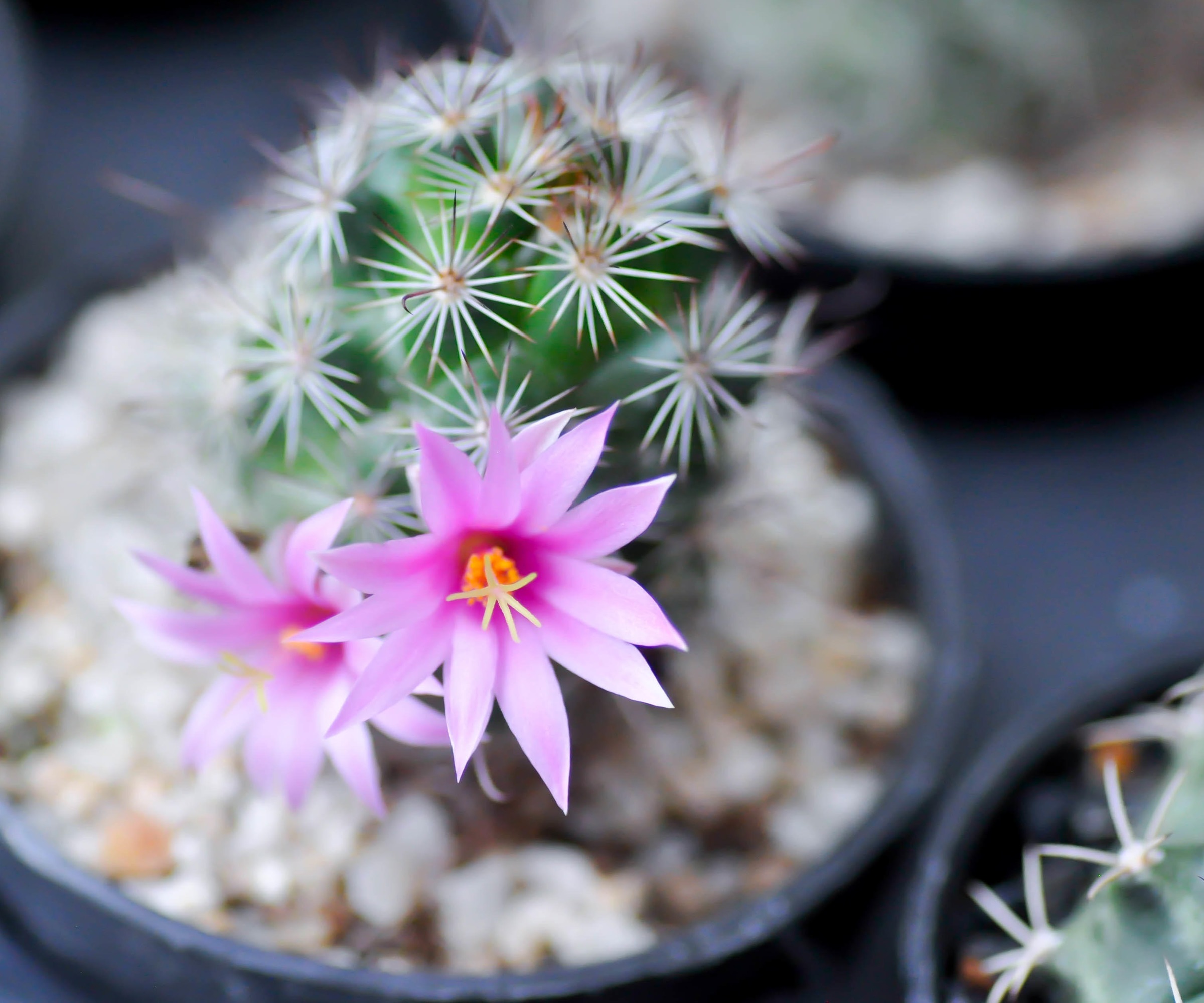
Neat, rounded and blue grey in color, this cactus has it all. Each globular stem reaches just 2.5 inches (6.3cm) high and has a fascinating symmetrical arrangement of bumps or tubercles, each bearing around eight to ten red, pink spines set in a star.
With a ring of delicate rose-pink blooms appearing in spring and summer, towards the top of the plant, it is a handsome addition to any potted indoor display. Sun loving, this beauty will cope with some part shade, it’s also pretty cold hardy withstanding temperatures dipping down to 44.6F (-7C).
Other varieties to look out for include pseudo scrippsiana with striped cream flowers and aurelianensis with its yellow blooms.
8. Sand dollar cactus
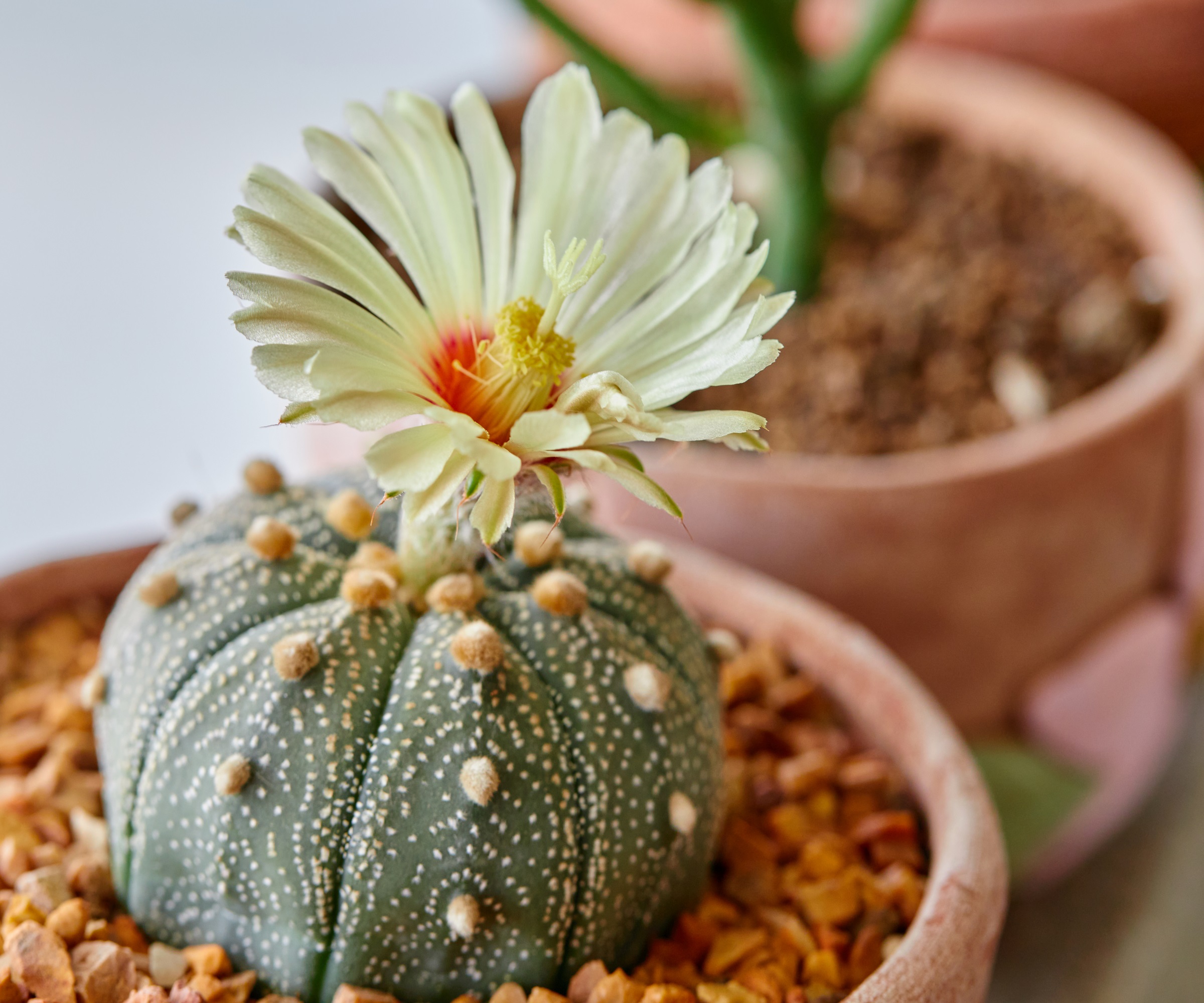
Slow growing and spineless, Astrophytum asterias is a captivating houseplant. A star cactus, its round, smooth shape is deeply ribbed and is dotted with curious bobbles of dense white fuzz, giving it real personality. Growing up to six inches high (15cm) and eight inches wide (20cm) it is perfect for potting up and displaying in a warm, sunny window and it's a great choice for a terrarium.
Blooms only appear after the plant is two years old, and then there are only one or two per season. However. the plants do become more prolific as they mature. Regular dozes of a balanced liquid fertilizer will also help with flowering.
As with most cactus, overwatering is this plant’s nemesis. Discover how to water a cactus, taking note of the ‘soak and dry’ technique and keep humidity levels low.
FAQs
Why does my cactus refuse to flower?
Cactus plants will not bloom until they are mature enough, and this can vary from two, three or more years. Having steadily evolved over hundreds of years, the plants have become sensitive to the length of daylight hours - known as photoperiodism - and time opening their flowers according to the season and time of day.
Some varieties only bloom during the night and these can last a day at most, so it's well worth checking them regularly. Heat is a vital part of this too, and some cactus varieties are more susceptible to fluctuating temperatures than others, so avoid draughty spots within your home.
Over and under watering can lead to plant health problems, which will ultimately affect the number of blooms produced or the complete loss of bud formation. High humidity can also prove an issue, encouraging damaging fungal infections and viruses to take hold.
Tempted to expand your cactus collection, then its worth knowing how to grow cactus from cuttings, so you can enjoy more plants for free. Of course, you will also need to discover the best way to repot a cactus for healthy plants and a painfree experience.

Journalist Jill Morgan has spent over 20 years writing and editing gardening, interior and property features. Titles she has worked on include The English Home, House Beautiful, Ideal Home, Houzz and Modern Gardens and she writes regularly for H&G as a Contributing Editor. Whilst she is a dab hand at renovation projects and DIY, she is happiest when out digging in the garden or planning a new border.